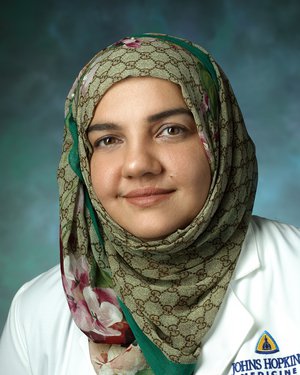Takeaway
By encouraging patients and supporting their self-efficacy, we can empower them to take charge of their health.

Passion in the medical profession | October 10, 2023 | 1 min read
By Zoobia Chaudhry, MBBS, Johns Hopkins Medicine
We’re a month into a new academic year, and new trainees are still full of hopes and fears. They’re excited to be a “real doctor,” but also fear missing something vital or appearing inadequate in front of patients and faculty. As an international medical graduate (IMG) there are even more challenges. In addition to learning to work in an entirely new healthcare system, I was very aware that some may not understand my accent or verbiage. I had to learn how to connect with patients and colleagues without knowing common jokes, cuisines, or sports teams. In a different country and culture, I sometimes felt I didn’t really belong. Some names were hard to pronounce, and for some my own name is hard to pronounce. I had to try to overcome all of the challenges of being a foreigner, an outsider.
Despite all these challenges, several thousand IMGs come to the U.S. every year. After training, they become an integral part of the healthcare system as clinicians, educators, researchers, consultants, and administrators, as well as part of their communities. My own journey, and the journey of other IMGs, makes me reflect on the human capacity to overcome obstacles. Learning is lifelong, and new challenges always arise; through the years I’ve found ways to overcome and move forward. Along the way, I found people who were invested in my success, and now I give back by investing in my trainees’ success.
My journey makes me reflect on the human capacity to conquer obstacles, as well as our ability to help and invest in other’s success. As I counsel my patients for lifestyle behavior change, I remind myself:
1. I believe that my patients are invested in their own health.
2. I invest in my patient’s long-term health by helping them identify and overcome barriers to healing.
3. Life is hard. If a patient gets off track then there is always a way to get back on track.
This piece expresses the views solely of the author. It does not necessarily represent the views of any organization, including Johns Hopkins Medicine.

